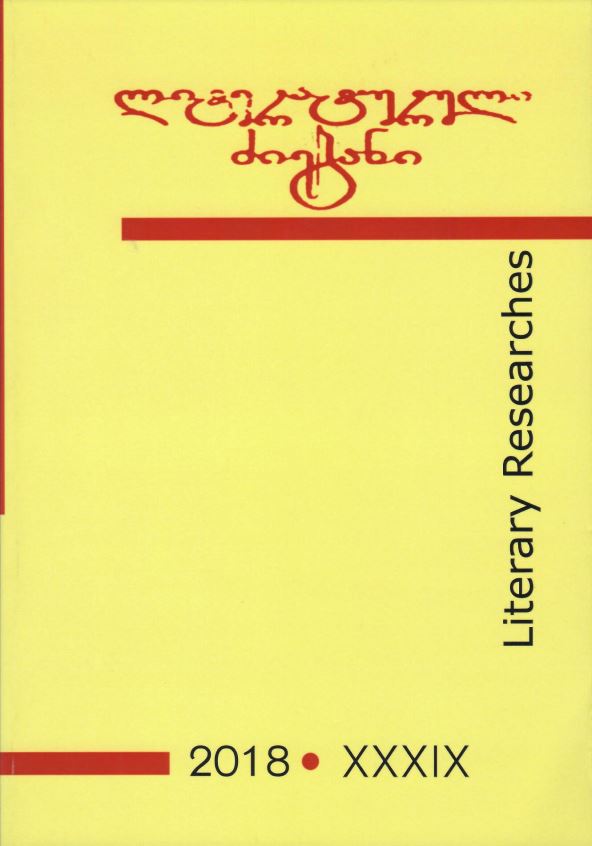Published 2018-12-20
Keywords
- Nikoloz Baratashvili,
- Personal Letters by Nikoloz Baratashvili,
- Poetic Semantics,
- Tropes,
- Poetic Semantics of Personal Letters by Nikoloz Baratashvili
How to Cite
Abstract
Nikoloz Baratashvili’s literary heritage can be divided roughly into two parts: poetry and personal letters.
18 personal letters written by the poet, which have reached us, have become a priceless possession of Georgian epistolary heritage. The exploration of these letters is interesting due to many reasons. Firstly, they present remarkable material for studying both, the poet’s life and his works. At the same time, due to the historical facts and events described in them, they become a reliable source for exploring history and society of Georgia of the epoch Baratashvili lived in, considered to be one of the most complex and significant periods in the history of Georgia.
On the other hand, as indicated by a number of Georgian scholars (linguists, literary critics or writers), rich stylistic devices and imagery employed by the author in his letters are also extremely interesting. It can be argued that Baratashvili reveals his attitudes and thoughts about certain objects and events through his personal letters as well as through his poetry. In addition, unlike his poetic heritage, poetic stylistics of his personal letters has not yet become an object of a thorough study.
Arguably, exploration of poetic semantics of Baratashvili’s letters, which reveal a number of
tropes and other components of poetic semantics, should also become a part of general research. In addition, a semantic study of the personal letters will be significant as it will depict speech peculiarities, specifically, the imagery and tropes employed by young, educated, high class people living in Tbilisi in the first part of the 19th century. This kind of research raises interest from the point of view of literary studies as well as that of linguistics.
The present paper is dedicated to general properties of poetic semantics – tropes – employed by Baratshvili in his epistolary.

